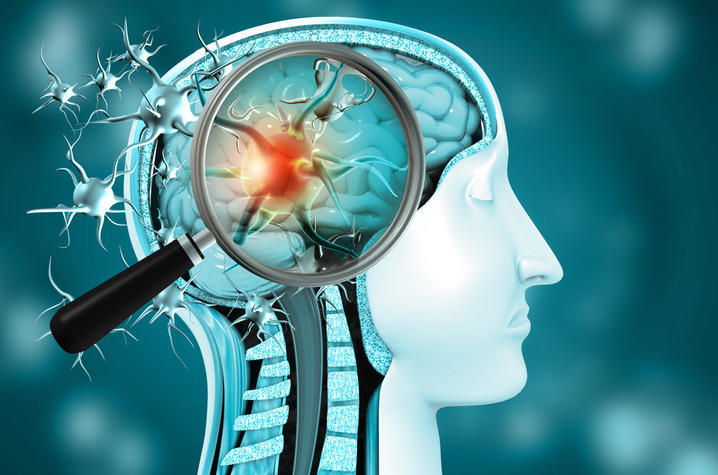Does COVID-19 Affect the Brain? What Scientists Know So Far

The University of Kentucky Public Relations & Strategic Communications Office provides a weekly health column available for use and reprint by news media. This week's column is by Jill Turner, Ph.D., an assistant professor in the UK College of Pharmacy’s Department of Pharmaceutical Sciences.
LEXINGTON, Ky. (March 22, 2021) — More than one year after the COVID-19 pandemic began, we are still learning about its effect on our bodies – and it is likely this research will continue for years to come.
One area of particular interest is how COVID-19 affects our brain. The central nervous system (CNS) is responsible for our body’s operation. The CNS is made up of two parts: the brain and the spinal cord, both of which control most body and mind functionality. We know that SARS-CoV-2 is neurologically invasive because one of the unique symptoms caused by the virus is attributable to the CNS – the loss of taste and smell, as well as severe headache.
More than 36% of patients exhibited neurologic symptoms from COVID-19, according to a recent report in JAMA Neurology. Additionally, a recent case study demonstrated the presence of CoV-2 in cerebrospinal fluid (CSF), which circulates around the surface of the brain and spinal cord. This is important to note because SARS-CoV-1, a related virus that was the cause of the SARS outbreak in 2003, has been linked to increased incidence of neurological demyelinating disorders that destroy nerve tissue, similar to multiple sclerosis (MS). These effects are thought to be due to the body’s immune hyper-response to the virus and suggest that the longer-term effects of COVID-19 may include later neurological symptoms even in individuals with few or no symptoms.
As the rollout of COVID-19 vaccines ramps up worldwide, and as immunity begins to control the spread of the virus, it is possible that clinical signs of disease may increase. CNS inflammatory cells activate in response to the virus, which leads to neuroinflammation and primary demyelination. Many of these effects include the observed neurological features of CoV-2 infection, including difficulty breathing, seizures and loss of consciousness.
As the state’s flagship, land-grant institution, the University of Kentucky exists to advance the Commonwealth. We do that by preparing the next generation of leaders — placing students at the heart of everything we do — and transforming the lives of Kentuckians through education, research and creative work, service and health care. We pride ourselves on being a catalyst for breakthroughs and a force for healing, a place where ingenuity unfolds. It's all made possible by our people — visionaries, disruptors and pioneers — who make up 200 academic programs, a $476.5 million research and development enterprise and a world-class medical center, all on one campus.




